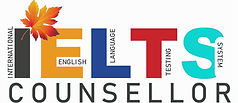Diploma in English for Engineers

COMMUNICATE CONCISELY, PRECISELY, AND CONFIDENTLY
Introduction
The training program will invariably, cover the major areas based on the desired outcomes, with special focus on application of the learnt skills; This syllabus will be replicated or metamorphosed to suite the levels and professional needs of each individual participant and an additional module would be included to teach them the English they need for their professions.
Course Outline
Course Code | Duration | Individual (Rs.) | Corporate (Rs.) |
|---|---|---|---|
DE05 | 6 months | 12750 | 8750 |
Study Mode
Online / Offline / Distance Education
This comprehensive and popular course covers all the areas of grammar necessary for students of engineering sciences, which includes reading, writing, listening comprehension, note-taking, summarizing, report writing, grammar and vocabulary. The engineers achieve a degree of lexis that helps in lucid expressions of technical situations. This course is designed in accordance with the Common European Framework of Reference for Languages (CEFR), and can be taken individually or through corporate training.
Modules | Units | Credits | Hours |
|---|---|---|---|
6 | 12 | 1200 | 100 |
This course is based on the European English Proficiency Framework Level B2 to C2. Formation of Study-Groups and Batches : Participants are grouped into the following categories:
GROUP 1 : Beginners or Elementary
GROUP 2 : Pre-Intermediate
GROUP 3 : Intermediate
GROUP 4 : Upper-Intermediate
GROUP 5 : Advanced

Training Cycle
Participants would be tested for progress, and performance reviewed frequently A test based on multiple choice questions. – 30 minutes. A written examination to test the professional use of English. – 60 minutes. An interview to test the verbal communication in a meeting. – 15 minutes each A PowerPoint slide presentation to be presented in the company premises. A presentation in the classroom (online, to be recorded for assessment) – 5 to 7 minutes each. A brief project submission with their own feedback about their progress. (500 words)

Corporate Training
A custom-made training program that upgrades the English language skills to practically usable forms:
Following steps would be taken in case, the course is conducted as Corporate Training:
Step 1: Categorizing students into small groups according to their English levels.
Step 2: Improving their grammar and English usage skills.
Step 3: Collecting, introducing, and explaining the glossary of their professional fields through exercises.
Step 4: Applying the above in business communication such as telephoning, e-mailing, reporting, etc.
Step 5: Training all of them to create and deliver presentations professionally (includes PowerPoint usage.)
Step 6: Tracking progress through assignments and regular reviews.
Step 7: Reviewing final outcomes through a practical approach

Who needs the
Diploma in English for Engineers
?
Engineers benefit significantly from obtaining a Diploma in English for several compelling reasons:
1. Global Communication: As technology advances globally, engineers must communicate across national and cultural boundaries English serves as the primary vehicle for professionals advancing technology today1. Whether collaborating on international projects, attending conferences, or working with diverse teams, proficiency in English facilitates effective communication.
2. Technical Documentation: Engineers frequently create technical reports, manuals, and documentation. A strong command of English ensures clarity, precision, and consistency in conveying complex information. Whether writing project proposals, specifications, or research papers, engineers rely on English to articulate their ideas effectively.
3. Collaboration and Networking: In an interconnected world, engineers collaborate with colleagues, clients, and stakeholders from different backgrounds. English proficiency enables seamless communication during meetings, presentations, and negotiations. Networking opportunities expand when engineers can express themselves confidently in English.
4. Access to Resources: A wealth of technical literature, research papers, and online resources are available in English. Engineers who can read and understand these materials gain a competitive edge. Whether studying the latest advancements or troubleshooting complex issues, English proficiency opens doors to valuable knowledge.
5. Job Market Competitiveness: Employers often seek engineers with strong communication skills. A Diploma in English demonstrates your ability to communicate effectively, making you more attractive to potential employers. Whether seeking employment or career advancement, English proficiency enhances your marketability.
6. Soft Skills: Beyond technical expertise, engineers need soft skills like teamwork, leadership, and adaptability. English language courses often emphasize these skills, fostering well-rounded professionals who can thrive in diverse work environments.
Thus, a Diploma in English equips engineers with the language skills necessary for successful collaboration, professional growth, and global impact. So, whether you’re designing bridges, developing software, or conducting research, mastering English enhances your effectiveness as an engineer.

